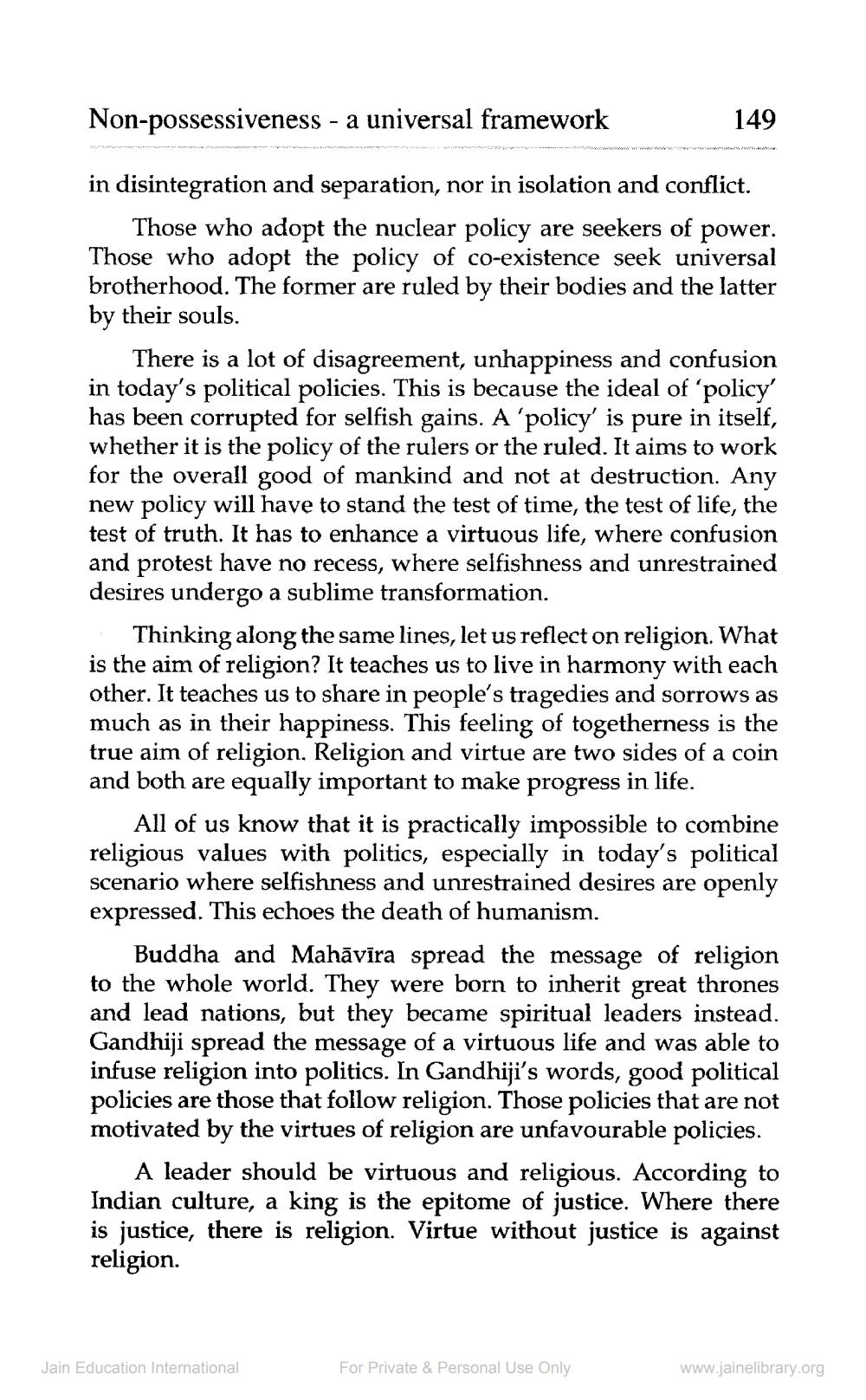________________
Non-possessiveness - a universal framework
149
in disintegration and separation, nor in isolation and conflict.
Those who adopt the nuclear policy are seekers of power. Those who adopt the policy of co-existence seek universal brotherhood. The former are ruled by their bodies and the latter by their souls.
There is a lot of disagreement, unhappiness and confusion in today's political policies. This is because the ideal of 'policy' has been corrupted for selfish gains. A'policy' is pure in itself, whether it is the policy of the rulers or the ruled. It aims to work for the overall good of mankind and not at destruction. Any new policy will have to stand the test of time, the test of life, the test of truth. It has to enhance a virtuous life, where confusion and protest have no recess, where selfishness and unrestrained desires undergo a sublime transformation.
Thinking along the same lines, let us reflect on religion. What is the aim of religion? It teaches us to live in harmony with each other. It teaches us to share in people's tragedies and sorrows as much as in their happiness. This feeling of togetherness is the true aim of religion. Religion and virtue are two sides of a coin and both are equally important to make progress in life.
All of us know that it is practically impossible to combine religious values with politics, especially in today's political scenario where selfishness and unrestrained desires are openly expressed. This echoes the death of humanism.
Buddha and Mahāvīra spread the message of religion to the whole world. They were born to inherit great thrones and lead nations, but they became spiritual leaders instead. Gandhiji spread the message of a virtuous life and was able to infuse religion into politics. In Gandhiji's words, good political policies are those that follow religion. Those policies that are not motivated by the virtues of religion are unfavourable policies.
A leader should be virtuous and religious. According to Indian culture, a king is the epitome of justice. Where there is justice, there is religion. Virtue without justice is against religion.
Jain Education International
For Private & Personal Use Only
www.jainelibrary.org




